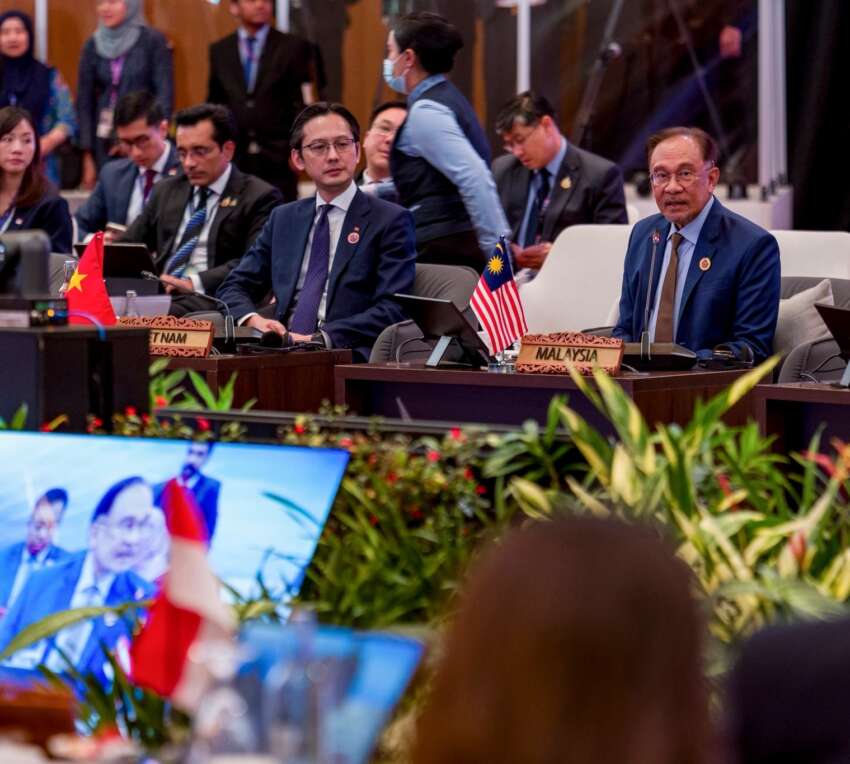
NO SALES; NO ARCHIVE; RESTRICTED TO EDITORIAL USE ONLY. NOTE TO EDITORS: This handout videos may only be used for editorial reporting purposes for the contemporaneous illustration of events, things or the people in the visual or facts mentioned in the caption. Reuse of the videos may require further permission. MANDATORY CREDIT - Izzuddin Abd Radzak/ Prime Minister’s Office of Malaysia.
Malaysian Prime Minister Anwar Ibrahim, who currently chairs ASEAN, has announced significant progress in efforts to facilitate dialogue between opposing parties in conflict-torn Myanmar. Speaking at the opening of the 46th ASEAN Summit in Kuala Lumpur on May 26, he emphasized the importance of bringing the conflicting parties to the negotiating table. The statement comes as ASEAN continues its efforts to find peaceful solutions to the crisis that emerged following the military’s violent seizure of power.
The Malaysian Prime Minister revealed that he had met with military council leader Min Aung Hlaing in Bangkok during April, while also maintaining communication with the National Unity Government (NUG). He stressed the significance of quiet diplomacy in the peace process, acknowledging that while progress may be modest and contacts remain fragile, maintaining even delicate relationships is preferable to allowing further division between the parties. The diplomatic efforts reflect ASEAN’s commitment to finding a peaceful resolution to the ongoing crisis, which has resulted in widespread civilian suffering under military rule.
While the military council plans to hold elections later this year, these have been widely criticized as a unilateral attempt to legitimize continued military control. ASEAN has explicitly stated that the military council’s planned elections are not a priority for the regional body. Malaysian Foreign Minister Mohamad Hasan has emphasized the need for extensive bilateral negotiations to address the Myanmar crisis, announcing plans to appoint a special ASEAN envoy to Myanmar and confirming his own upcoming visit to the country in June. These diplomatic initiatives represent ongoing regional efforts to address the crisis, though they face significant challenges given the military council’s continued violence against civilians and resistance to meaningful dialogue with opposition forces.



